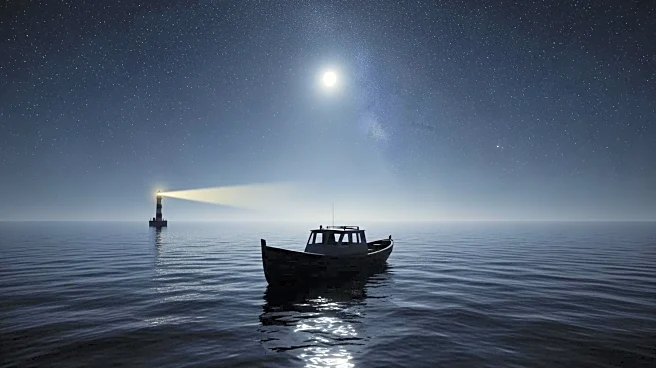What's Happening?
The Israeli military has intercepted the last vessel of the Global Sumud Flotilla, a humanitarian mission attempting to deliver supplies to Gaza. The flotilla, initially consisting of 44 boats, was dismantled by Israeli forces, who arrested hundreds of activists. The final boat, the Polish-flagged Marinette, was seized, and its crew detained. The flotilla's interception has drawn widespread condemnation from international leaders and organizations, with calls for Israel to respect the rights of the detained activists. The flotilla aimed to break the Israeli blockade on Gaza, a move Israel claims is necessary for security reasons.
Why It's Important?
The interception of the humanitarian flotilla by Israel has significant implications for international relations and human rights advocacy. The action has sparked global protests and condemnation, highlighting the ongoing tensions surrounding the Israeli blockade of Gaza. The incident underscores the challenges faced by humanitarian efforts in conflict zones and raises questions about the legality of such blockades under international law. The situation has also strained diplomatic relations, with some countries taking measures against Israel in response to the flotilla's seizure.
What's Next?
The international community is likely to continue pressuring Israel to release the detained activists and respect international maritime laws. Diplomatic tensions may escalate as countries and organizations advocate for the rights of those involved in the humanitarian mission. The United Nations and other international bodies may become more involved in mediating the situation and addressing the broader issues related to the blockade of Gaza. The outcome of these diplomatic efforts could influence future humanitarian missions and the geopolitical landscape in the region.











